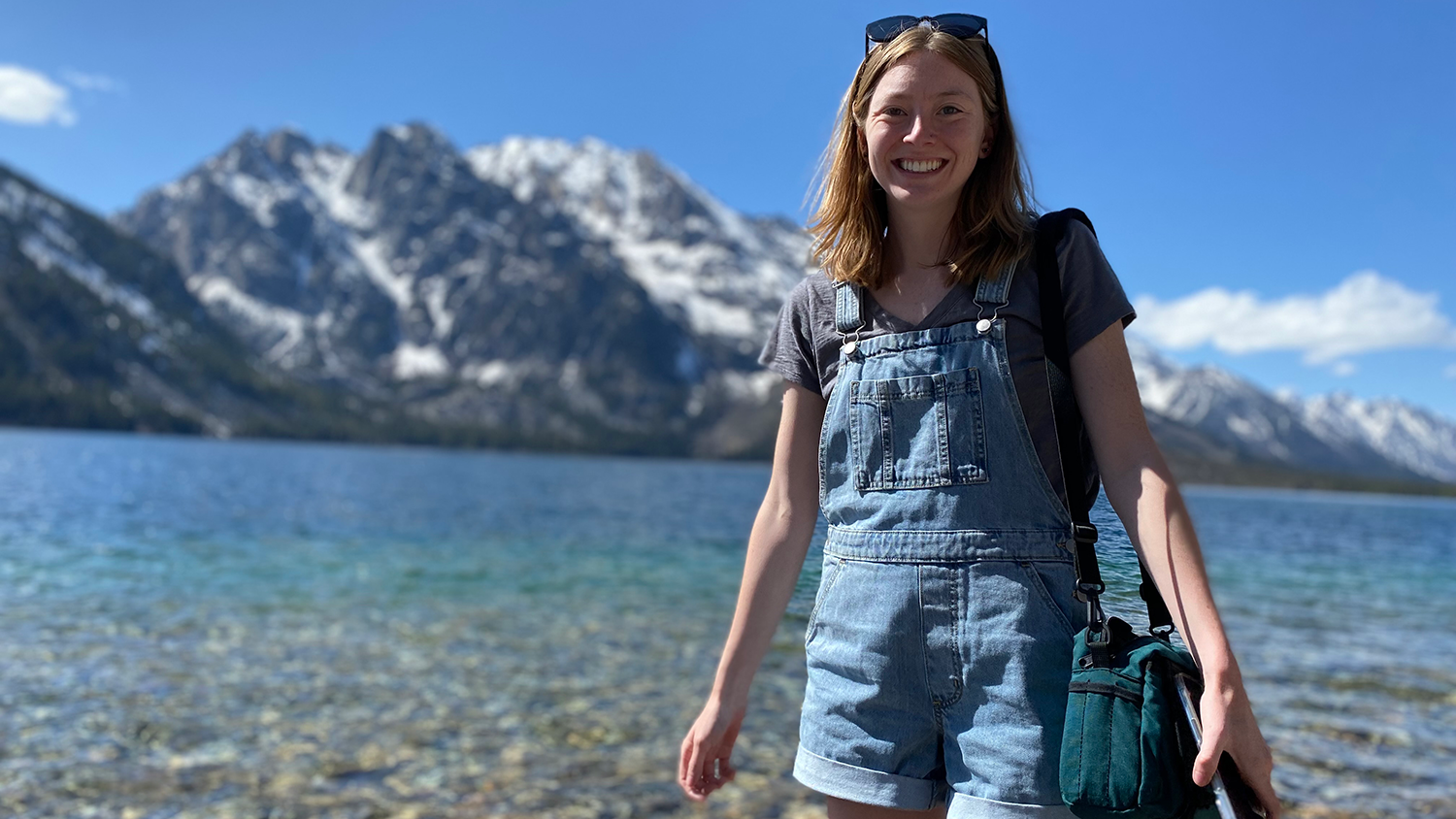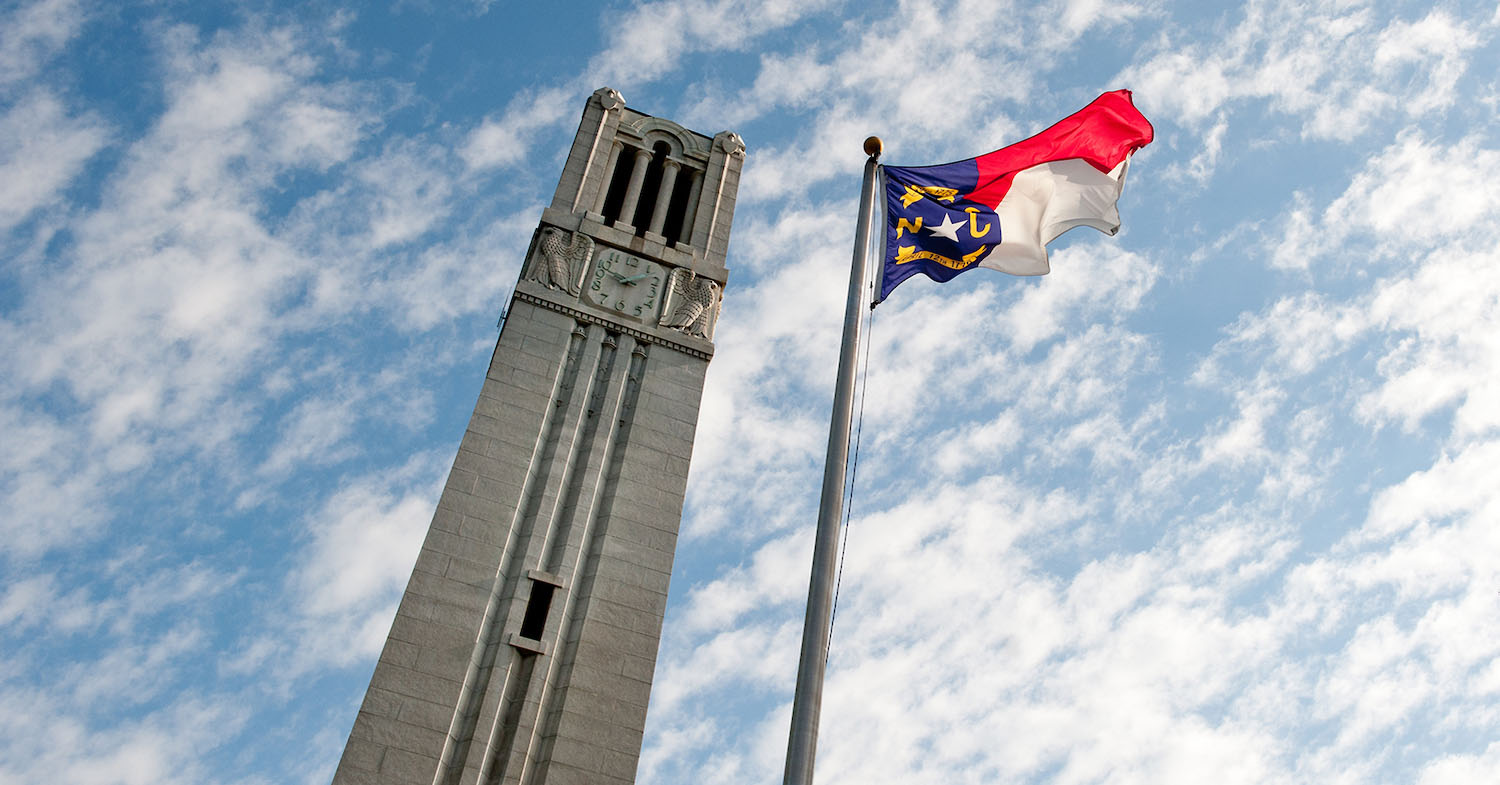Julianne Reas is a second-year graduate student in the Department of Parks, Recreation and Tourism Management at NC State’s College of Natural Resources. She is studying in the natural resources master’s degree program, which focuses on several aspects of natural resource policy, management and assessment.
Reas, who also earned her bachelor’s degree in communication studies at NC State, was recently selected as a Global Change Fellow. Her research at NC State focuses on better understanding the drivers of conservation action on local and global levels.
“The human-environment relationship is complex, but understanding the most effective influences and drivers of attitudes and behaviors across populations and experiences is crucial for climate action,” Reas said. “I examine the effectiveness of social strategies that promote connection to nature both locally in North Carolina elementary schools, and globally within the Antarctic tourism industry.”
The Global Change Fellows program is designed to support students across multiple disciplines who are passionate about fighting climate change. We asked Julianne to tell us more about the impact she hopes to make through her research and her involvement in the program. Check out the Q&A below.
What encouraged you to enter your field of study?
While I was an undergraduate, I spent a summer road tripping around different national parks and really connecting with the environment in a way that was new to me. On this trip, I developed a strong passion for conservation and when I returned to NC State, I was motivated to connect more people to parks.
I founded a student organization on campus, The National Parks Club, and spent the next three years engaging students with the outdoors and conservation issues through camping trips, service and community events. After both witnessing and personally experiencing the profound ways that experiences in nature can change attitudes, behaviors and lifestyles, I was drawn to study the human dimensions of natural resource management.
How do you hope to make an impact through your research?
We need climate action now. But we’re not going to be able to achieve our collective goals without people from varying backgrounds and influences all working to address them. I hope my research can contribute to the creation and implementation of more effective social strategies that ensures people are up to the task of addressing climate change head on.
How has the College of Natural Resources helped you along the way?
The College of Natural Resources has been extremely influential in helping me shape my path. I received a bachelor’s degree in communication from NC State, but became involved with the College of Natural Resources through a parks, recreation, and tourism management minor. My involvement with the college as an undergraduate allowed me to pursue undergraduate research and professional development thanks to extremely supportive faculty that I connected with. As a graduate student in the College of Natural Resources, I receive the same support from faculty and other students who are just as passionate about their research as I am.
What advice do you have for those who want to enter this field?
You could do a million different things in the field of natural resources, and you don’t need to know exactly what that is yet. Just be open to opportunity, be persistent and be passionate about what you’re doing. Passion shines through and people see that.
What future aspirations do you have in your field of study?
I believe utilizing social science is a critical piece of the puzzle to solving the climate crisis, and I hope that my background in communication studies and my current master’s work studying the human dimensions of natural resources will allow me to contribute to the implementation of people-focused, climate-change solutions. I hope to either pursue a Ph.D. to continue studying human relationships with the environment, or to enter into a government position with the National Park Service working on complex visitor and resource management issues.
- Categories:



